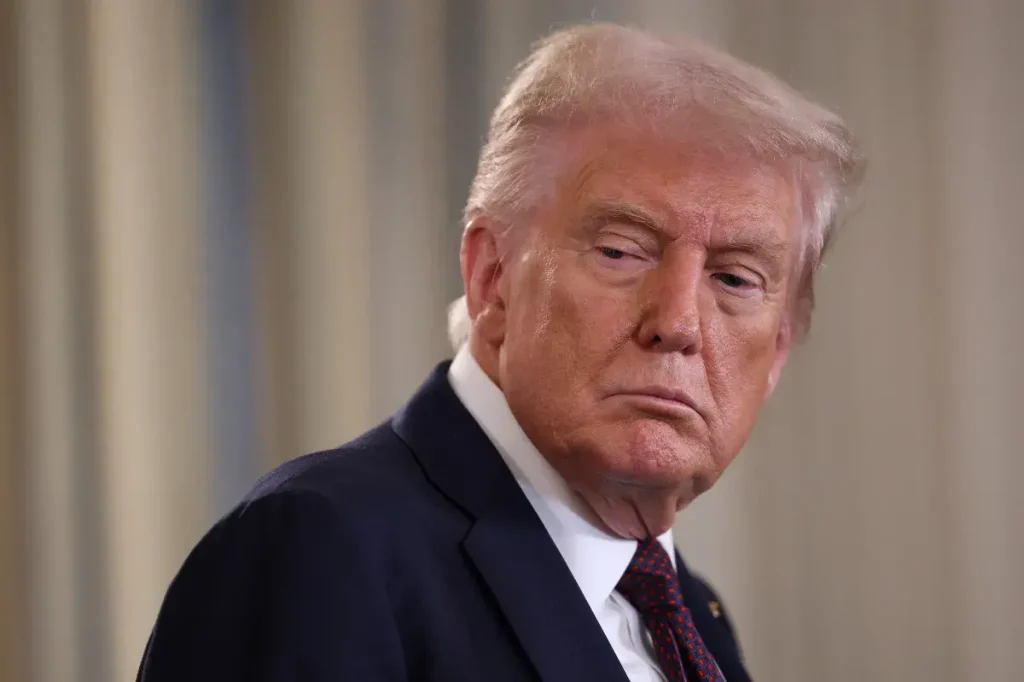Public Opinion Tilts Against Republicans in Government Shutdown Blame Game
As the United States government shutdown continues, a new Washington Post poll reveals Americans are more likely to hold Republicans accountable than Democrats for the current impasse. The survey shows that 47 percent of respondents blame either congressional Republicans or President Donald Trump, while only 30 percent point fingers at Democrats. Nearly a quarter of Americans (23 percent) remain unsure who bears responsibility for the shutdown that has now furloughed hundreds of thousands of federal workers and disrupted government services nationwide.
The political messaging battle has intensified as both parties attempt to frame the narrative around the shutdown. Democrats argue Republicans have refused to compromise, particularly regarding the extension of health care tax credits and reversing recent Medicaid cuts. Meanwhile, Republicans insist Senate Democrats are the obstructionists, having rejected a funding bill already passed by the GOP-controlled House. The Republican National Committee spokesperson Kiersten Pels directly accused Democrats of “holding seniors, veterans, and law enforcement hostage to push through a far-left wish list that prioritizes illegal aliens over hardworking citizens.” In stark contrast, Democratic National Committee Deputy Rapid Response Director Jaelin O’Halloran countered that “Donald Trump shut down the government to avoid shielding millions of Americans from skyrocketing health care premiums,” adding that “this is Trump’s shutdown, and Americans know it.”
The Washington Post’s findings align with other recent polling data suggesting Americans generally place more blame on Republicans than Democrats. A New York Times survey conducted before the shutdown found 26 percent would blame Trump and Republicans, while 19 percent would blame Democrats, with 33 percent blaming both sides equally. However, that same poll revealed 65 percent of respondents believed “Democrats should not shut down the government, even if their demands are not met,” suggesting complicated public attitudes about government funding standoffs. The current impasse began when lawmakers failed to pass a funding bill by the September 30 deadline, leaving the government without authorization to spend money on many functions and services.
The real-world consequences of the shutdown are becoming increasingly apparent to Americans, with 66 percent expressing concern about its impacts according to the Washington Post poll. Only 12 percent reported being “not concerned at all.” The shutdown has far-reaching effects beyond the hundreds of thousands of federal workers facing furloughs or potential job loss. Americans are experiencing disruptions to passport processing, national park operations, and various government benefits. This marks the first government shutdown since the record-setting 35-day closure that stretched from 2018 into 2019, which similarly occurred during Trump’s presidency.
Congressional leadership from both parties has taken to public statements to reinforce their positions. House Minority Leader Hakeem Jeffries and Senate Minority Leader Chuck Schumer issued a joint statement claiming, “Donald Trump and Republicans have now shut down the federal government because they do not want to protect the healthcare of the American people.” House Speaker Mike Johnson countered on social media platform X that “Senator Chuck Schumer has shut down the federal government for one reason and one reason alone: to protect himself from his own far left, radical base.” Trump himself weighed in on Truth Social, suggesting Republicans should use the shutdown “to clear out dead wood, waste, and fraud.”
The path forward remains unclear as the Senate adjourned Thursday in observance of Yom Kippur, with plans to reconvene Friday. The current standoff centers on a temporary funding bill, known as a continuing resolution (CR), which has passed the Republican-controlled House but stalled in the Senate, where it requires bipartisan support to overcome the 60-vote filibuster threshold. Betting odds suggest many Americans anticipate the shutdown could persist for weeks, with no immediate resolution in sight. As the impasse continues, both parties appear entrenched in their positions, with each side believing the American public will ultimately hold their opponents accountable for the disruption to government services and the broader economy.


